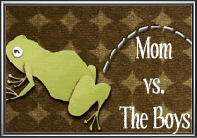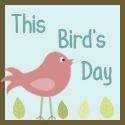This New Year's Day marks my 9-year anniversary of becoming vegetarian.
I don't talk about it that much. I don't mind that my husband isn't - although he now eats a vegetarian diet at home. I don't want to be one of those preachy people who tells people what to do. But I do think that if you're making choices about what you eat, you are responsible for knowing what those choices mean, beyond what's for supper.
I changed my diet on a whim, really. I have a deep empathy for other creatures, and a deep concern about the environment. I didn't like the idea of eating hormone- and antibiotic-laden, genetically engineered meat. And in January of 2001, I just decided that my feelings about those things made it impossible to continue eating meat.
Don't get me wrong. I really enjoyed eating meat. I can look at someone else's dinner and remember exactly how good it tastes. I ate fish, beef, crab, shrimp, scallops, chicken, pork, even goat one time. I've had my share of calamari and escargot.
I didn't really research it. It feels like common sense that killing animals hurts them - and I don't want to hurt them. It seems wasteful that the input (grain and water) is so high compared to the output (meat) - especially in light of the diminishing supply of global freshwater and the fact that global hunger numbers are rising. For me it was primarily an ethical decision, both for people (hello, global warming) and for animals.
I think what took me so long to make the change (nearly 25 years!) was that I didn't want to think about it. I looked at my chicken dinner, roast beef, salmon steak or bacon and thought - yum. And pushed out of my mind where it came from. We've all seen the images of factory farms, chickens in cages smaller than the area of my two hands spread out, cows in terror being led to the slaughterhouse, etcetera... but it's easier to push those images away, to click to the next website, to willfully forget that that's where your dinner comes from.
It's easier to pretend that pigs, for example - that we know are social and intelligent - have not been genetically engineered to grow at a rate 400% higher than is natural, are not kept in filthy, confined, indoor, high-temperature (to increase body weight) intensive farm stalls, to not think about how their teeth are clipped, tails chopped, and ears notched without pain killers.
It's easier to just ignore that for every pound of shrimp, there's up to 20 pounds of by-catch. What's by-catch? All the other species that are caught and killed in the trawling nets used to scoop along the ocean floor to collect the shrimp. These fine nets, as you can imagine, leave a swath of destruction in the coral reefs where shrimp live. Recent sampling in the South Atlantic rock shrimp fishery found 166 species of finfish, 37 crustacean species, and 29 other species of invertebrate among the bycatch in the trawls, according to the South Atlantic Fishery Management Council. All so that people can eat their shrimp rings.
For every animal or fish that is eaten, many more die. "Downers" in the livestock industry - those that simply collapse from lack of water, overheating, exhaustion - are dumped and left to die. Animals that become infected with diseases transmitted in the crowded, unnatural living conditions of today's farms are put down (often in a most inhumane manner - the farming industry is exempt from cruelty laws). By-catch includes 'cute' species like dolphins, sea birds, turtles and whales, as well as sharks, other fish, and other sea creatures - that form an important part of the ocean's ecosystem.
I could go on and on. And you can read about this, if you have any interest, in all sorts of places, from google to the library.
I feel compelled to know. It breaks my heart - I was weeping as I read Jonathan Safran Foer's new book, Eating Animals. I feel physically sick to think of the practices and destructive nature of industrialized livestock farming - and it's all industrialized these days. There may be a small farm down the road where you see chickens, pigs or cows out in pasture, but that isn't a money-maker. The money's in mass production, and that means the most animals in the smallest area. That's where your packaged meat at the grocery store comes from. Shoppers want the best prices, and the best prices mean mass production.
Terms like organic, free-range, cage-free are not always strictly regulated - and if they are, the regulation may state that 'free-range' animals have 'access' to the outdoors (this could be a window or a door that's rarely or never opened), animals that are packed onto the floor of a barn are 'cage-free', 'organic' animals may be fed 'organic' grains that may or may not have had non-organic fertilizers. Nevermind that rendered carcasses, animal waste (yeah, feces), and other icky stuff like blood, hooves, feathers, even plastics are often fed to the animals in factory farms.
If you've read this far, you're one of the few who cares. It's not easy to admit that the cruelty and abuses of modern farming practices are directly connected to our own habits.
So I'm issuing a challenge. A challenge to my readers to do a little reading on the subject. A challenge to make a change in your own life that will impact many lives - whether it be adding one or two meatless dinners a week, or going the whole hog (!) and trying out a vegetarian diet for a while - or for a lifetime. See how it goes.
I thought I'd try it in 2001. I didn't know how long it would last. I didn't know if I could do it. I am one of the least self-disciplined people I know (I had cookies for breakfast today, if that gives you any indication). Nine years later, I am firmly entrenched and have never regretted my decision.
If you can't think of what to eat (the biggest difficulty for beginner vegetarians), I can recommend a few great cookbooks (like Evelyn Raab's The Clueless Vegetarian, and Mark Bittman's How to Cook Everything Vegetarian), share my own recipes, send you over to the Vegetarian Times website, where they have a huge recipe database.
I'd LOVE to help if you decide to take up the challenge. I'd love to hear about it, too.
Wednesday, December 23, 2009
Subscribe to:
Post Comments (Atom)




























I became a vegetarian one Thanksgiving when I was 14. Something about holidays, eh?
ReplyDeleteI struggle a lot with the fact that I'm not vegan. Our milk is organic, but our cheese and yogurt isn't. My husband is vegetarian, but he would never go vegan because he loves cheese too much. Nothing I say will convince him otherwise.
It is interesting to begin to teach the kids about being vegetarain. Like when we are at a friends for lunch and they are eating meat pizza and we aren't and I have to tell her why she can't have it. I want to say because that is animal on his pizza but I don't want to offend the other parent. So I have to be careful with what I say while still letting her know why we shouldn't eat meat.
Interesting thoughts for sure. I rarely ate meat unti I met my husband who is a HUGE meat eater. I eat it a lot more now. I have to admit that I am one of those people you talk about who doesn't really think much about where it comes from.
ReplyDeleteI did hear something about McDonalds destroying natural habitat because they needed more space for cattle to raise for their burgers. That made me sad.
Oh this topic, again! *smile* It's haunting me, every way I turn... Maybe it's a sign?? :-)
ReplyDeleteI'm the same as Jenn. I rarely ate meat and if I did, it was chicken with the occassional turkey, before I met my husband. {If I think about where the meat came from, I gag. Really. Cutting up chicken I want to vomit as I know it was a living animal. It's really difficult for me.} Now? Every single meal. A meal is not complete unless it has some form of meat in it...
Maybe I'll secretly start January with adding in one vegetarian meal a week and increasing it more. Maybe that will be my New Year's resolution instead of the typical "loose weight.." blah!
Such an inspiration you are!!! :-)
About 6 months ago i stopped eating beaf due to the environmental damage. I actually dont miss it
ReplyDelete